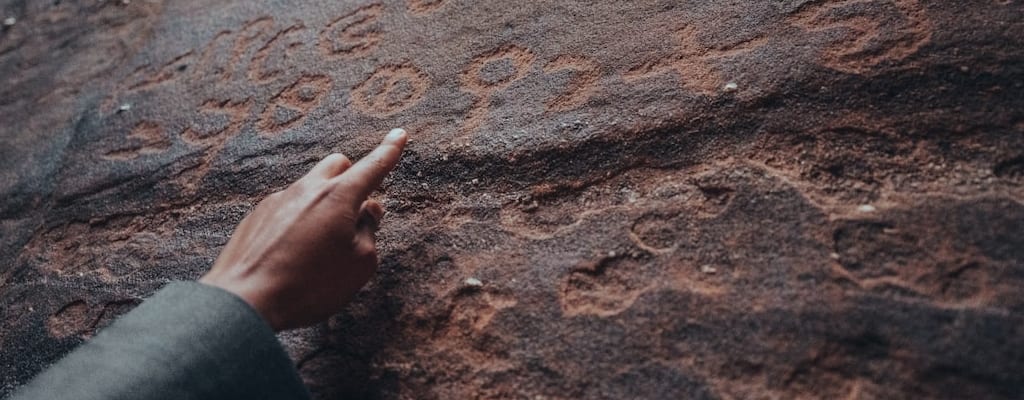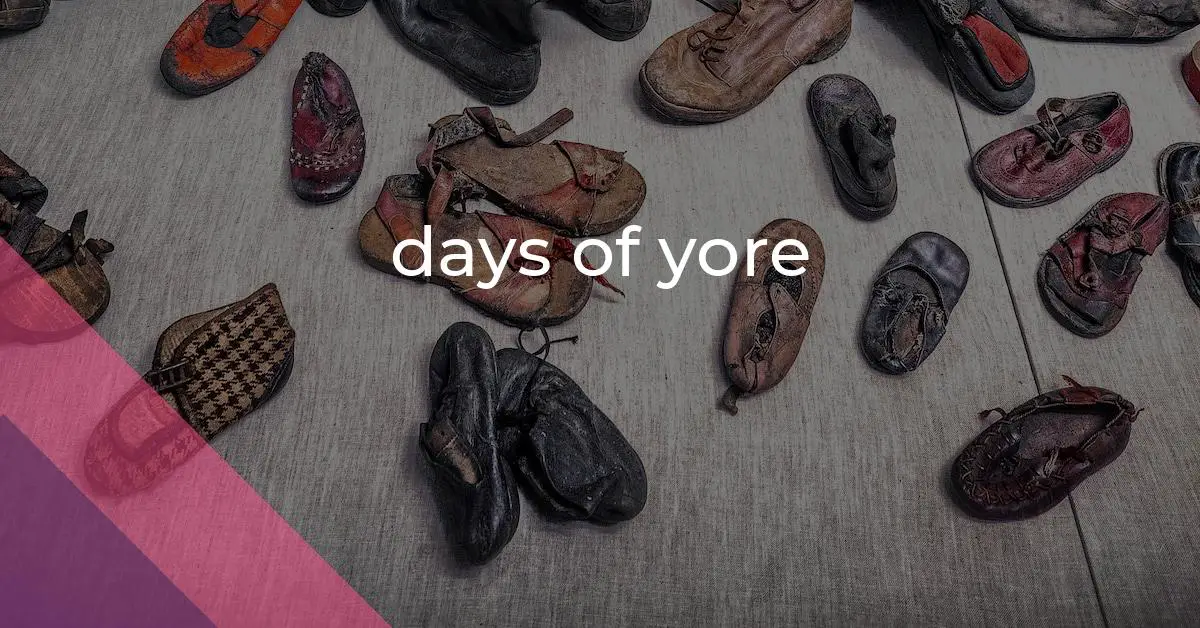days of yore: Idiom Meaning and Origin
What does ‘days of yore’ mean?
The idiom "days of yore" refers to a past time, often with nostalgia, when things were different or better. It is used to evoke memories or romanticize a bygone era.

Idiom Explorer
The idiom "down the road" means in the future or at a later time.
The idiom "donkey's years" means a very long time. It is often used to indicate a period of time that feels like it has been going on for a significant and extended duration.
The idiom "day out" refers to a day spent doing something enjoyable or different from one's usual routine.
The idiom "day of days" refers to a highly significant or memorable day, often considered the most important or remarkable in a person's life or in a particular context.
The idiom "day in, day out" means consistently or without interruption, typically referring to a repetitive or monotonous daily routine or task.
The idiom "day and age" refers to the present time period. It is used to emphasize that certain beliefs or practices are different now compared to the past.
The idiom *day after day* refers to the repetition or continuity of an event or action on a daily basis, without any significant change or variation.
The idiom "dawn of a new day" means the beginning or start of a new period of time or a fresh start after a difficult or challenging situation. It symbolizes hope, optimism, and the opportunity for a fresh beginning.
An idiom used to describe something ordinary, typical, or unremarkable.
Fascinating Past Unveiled
The idiom "days of yore" is a phrase commonly used in English language to refer to a distant or past time. It is believed to have originated from Middle English and its usage can be traced back to the 12th century.
One fact about the idiom "days of yore" is that the word "yore" is an archaic term meaning "time past" or "former times." When used in conjunction with "days," the idiom creates a phrase that signifies a time in the past.
The idiom "days of yore" is often used to evoke a sense of longing or reminiscence about a time that is perceived to be better or more idealized than the present. It is often used to describe a bygone era or an earlier period in history, appealing to a sense of nostalgia for a simpler and perhaps happier time.
The idiom "days of yore" is related to the idiomatic expressions "back in the day," "bad old days," "way back when," "day and age," and "day of days." These idioms all convey a sense of looking back to the past.
The phrase "back in the day" is used to refer to a time in the past, often with a sense of fondness or nostalgia. It is similar in meaning to "days of yore" and can be used interchangeably to evoke a sense of reminiscence about a previous era.
The expression "bad old days" is used to describe a period in the past that was difficult, challenging, or less favorable than the present. While "days of yore" often conveys a positive or idealized view of the past, "bad old days" highlights the negative aspects of a previous time.
"Way back when" is another phrase that is used to refer to a distant or past time. It is generally used in a casual or colloquial manner, similar to the conversational style of "days of yore." Both idioms evoke a sense of nostalgia or reminiscence about a period that is no longer the present.
The expression "day and age" is often used to contrast the current time with a past era. It suggests that things have changed or progressed significantly since that earlier time. This idiom can be used in conjunction with "days of yore" to emphasize the difference between the past and the present.
The idiom "day of days" is used to describe an extraordinary or memorable day. It can be connected to "days of yore" to emphasize the significance or specialness of a past time. Both idioms evoke a sense of importance or momentousness.
The idiom "days of yore" is a phrase that captures the essence of longing for a perceived better or more idealized past. Its origins can be traced back to Middle English, and it has become a commonly used expression in the English language. Whether used in poetry, literature, or everyday conversation, this idiom offers a glimpse into the human desire to reflect on and romanticize the past.
Example usage
Examples of how the idiom *days of yore* can be used in a sentence:
- In the *days of yore*, knights would embark on quests to rescue princesses.
- Grandma loves telling stories of the *days of yore* when she was young.
- I wish we could go back to the *days of yore* when life was simpler and technology wasn't so inescapable.
The idiom *days of yore* refers to a distant or romanticized past when things were different or believed to be better. It is often used nostalgically to reminisce about an earlier time or to contrast the present with a time of perceived simplicity or charm.
More "History" idioms



